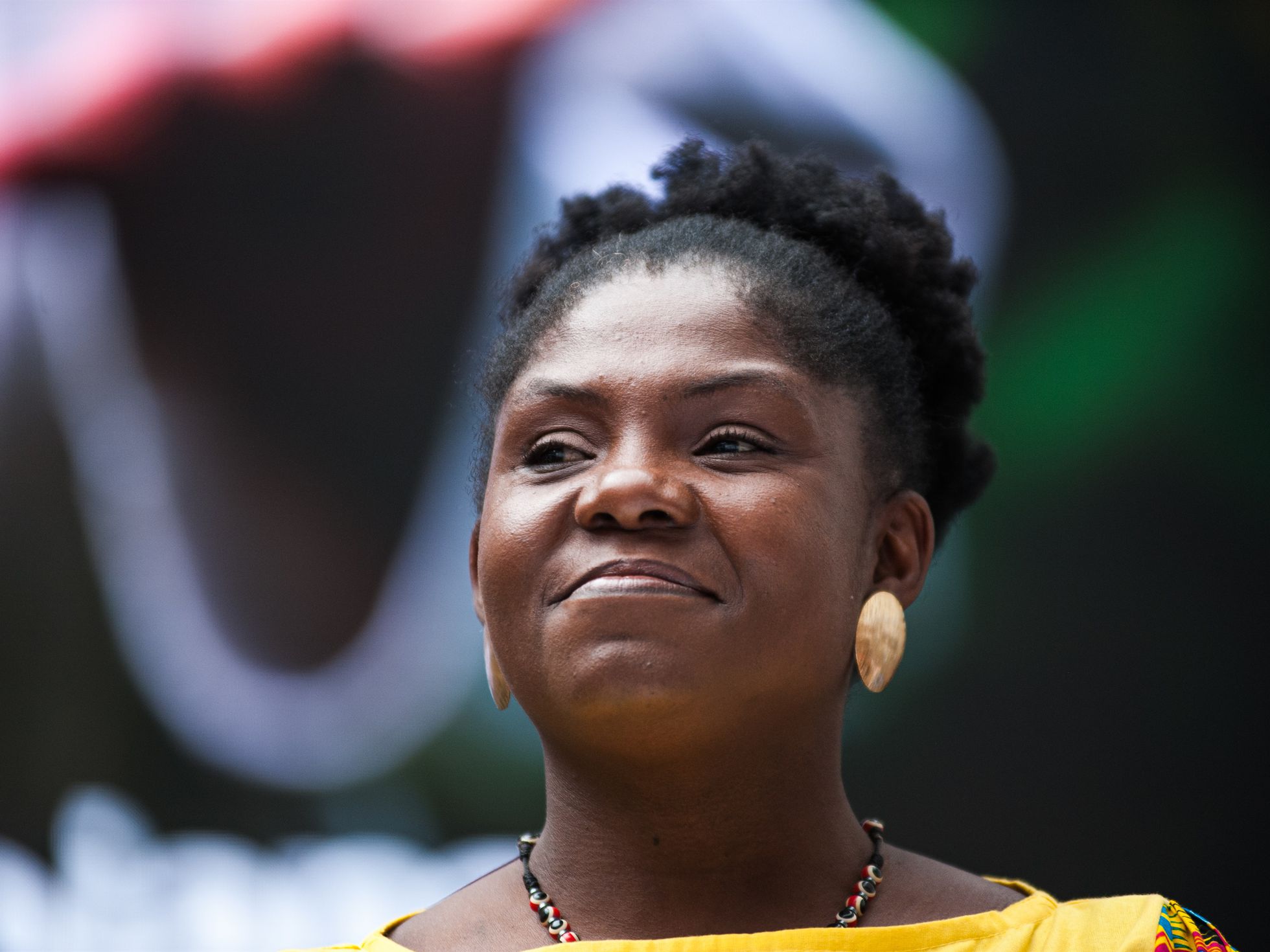
Francia Márquez candidate for the Vice Presidency of Colombia. Photo: Zuma Images

Orinoco Tribune – News and opinion pieces about Venezuela and beyond
From Venezuela and made by Venezuelan Chavistas

Francia Márquez candidate for the Vice Presidency of Colombia. Photo: Zuma Images
By Juan Diego Quesada – Jun 3, 2022
Until recently, Gustavo Petro understood politics as a solitary exercise. In his time as congressman, he used his position to attack corruption or paramilitarism from the podium. As mayor of Bogota, he was criticized by those around him for being reluctant to take the advice of others. Now he has understood that to be the next president of Colombia he needs the help of others, but especially that of Francia Márquez, his vice presidential running mate.
Márquez, an Afro woman who paid for her law studies by working as a maid, has become a phenomenon that has broken all the schemes of local politics. Faced with her, a refreshing person who has never held any public office, it will be hard for Rodolfo Hernández to argue that she is a politician in the same way as any other politician is, or that she represents the interests of the elites. Moreover, she has a powerful feminist message to attack the former mayor of Bucaramanga, who often makes sexist comments. Petro’s strategists know that there are two men competing for the presidency, but that it will be the women who will decide who ends up in the Casa de Nariño.
The attention on Francia Márquez is going to be redoubled in these last 20 days left before the voting. She feels that in the first round she was not been given all the space she deserved. Now she will have it. This Tuesday it was announced that she will be equal to, or perhaps more relevant than, Petro. People who know her point out that there is confidence in her character, audacity, and courage.
The surprising arrival of Hernández in the second round has forced Petro to change direction. He was more confident facing “Fico” Gutiérrez, who clearly represented the legacy of Uribismo. Petro knows that lesson by heart. However, Hernández is a flamboyant political phenomenon, a 77-year-old real estate magnate, rich and foul-mouthed, who sells himself as the man who will save Colombia from corruption. Petro now finds himself as the politician more associated with the establishment and traditional politics, a role he has never played in his life. By adopting a social-democratic and serene discourse, the former guerrilla wants to attract to himself the moderate voter who does not want to leave the country in the hands of an unknown like Hernández. Although, if you think about it, it is nothing new, only that Colombia has not been able to detect it: Hernandez represents the result of the conversation on social media networks, as did Trump, Bolsonaro in Brazil, or Bukele in El Salvador.
Márquez and Petro must now explain to the country’s sectors that the nation cannot remain in the hands of a populist with authoritarian and oligarchic ties. They want to pose the contest as an election between a moderate leftist—many people do not have that vision of Petro—against an unpredictable man. Emphasis will be placed on Hernández’s volatile and unpredictable personality. Hernández became nationally known a few years ago for beating up an opposition councilman. The city of Bucaramanga sided with the aggressor, giving him a sort of rough individual image. Petro’s strategists are trying to paint Hernández as a someone who is not level-headed enough to make key national decisions.
The other flank on which Hernández may suffer is that of corruption. Although his platform is called Liga de Gobernantes Anticorrupción (League of Anti-Corruption Rulers), he was the only one of the candidates who has been indicted for a serious corruption case. During his time as mayor, his son received two million dollars from a company that received a concession. This has been proven because the company and the son signed a document before a notary. At the end of July he will be called to testify in a trial, but that is after the election.
Hernández’s position as a businessman who governed his own city generated many conflicts of interest, establishing Hernández’s inability to differentiate well between public and private concerns. He has also often publicly celebrated the fact that the buyers of his homes have been paying him interest for a long time.
RELATED CONTENT: Colombia: Who is Rodolfo Hernández?
Márquez’s vice-presidency, in the event of victory, would have enormous historical significance, for women, for the communities of that other Colombia, including Black, Afro-descendant and the Raizal and Palenquero communities. Mabel Lara, a journalist who opted to enter Congress and who is enormously popular, has joined the campaign with a long letter in which Petro is not even mentioned, only Francia Márquez.
From this point on, Francia will have to go on the attack. The latest published poll shows a two-point lead for Hernández, who is riding a wave after his surprising results on Sunday. The approach of the left-wing pact is to stop this trend as soon as possible. What it has going for it is that never before has the left counted such a solid flood of votes, 8.5 million, as it received in the first round. Now it must add numbers from the center. Fajardo’s support for Hernández could be a turning point, but that is yet to be decided. Be that as it may, currently the numbers between Petro and Hernández are very tight. Everything may be decided by a handful of votes. Petro’s team are counting on Francia Márquez to make the difference. Her strong image and clean past has to become what tips the electoral scales.
(Resumen Latinoamericano – English)